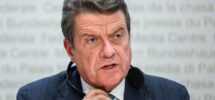[ad_1]

An energy crisis is no time to be an electricity hog.
As Europe contends with spiraling power bills, thanks in no small part to Russia’s war in Ukraine, extravagant nighttime illumination is being called into question—including at the Eiffel Tower.
The Paris landmark currently stays lit until 1 a.m., but city hall is expected in the days ahead to propose moving that back to 11:45 p.m., according to the Guardian.
“It’s a highly symbolic gesture—part of the growing awareness around energy sobriety,” Jean-François Martins, head of the tower’s management, told the publication.
Similar moves have been made across Europe this summer: Authorities in Berlin reduced night-time lighting at the Victory Column and Kaiser Wilhelm Memorial Church, as did their counterparts in Marseille at the Pharo Palace and other monuments.
But the real fear is winter. As Europe contends with spiraling energy costs—fueled by inflation, the Ukraine war, and extreme weather—cutting back on electricity consumption before the cold sets in is critical.
“The next 5 to 10 winters will be terrible if nothing is done,” tweeted Belgium’s energy minister, Tinne Van der Straeten, late last month.
On July 26, the European Union announced an agreement to cut natural gas use by 15% this winter, saying in a statement, “Today’s decision has clearly shown the member states will stand tall against any Russian attempt to divide the EU by using energy supplies as a weapon.”
It didn’t have to wait long. Earlier this month, Russia cut off gas supplies indefinitely via Europe’s main pipeline. Asked if supplies would resume if sanctions against Russia over the Ukraine invasion were eased or lifted, Kremlin spokesman Dmitry Peskov told reporters, “Of course.”
Energy-saving plans across Europe include a ban on heated private swimming pools in Germany, switched-off illuminated signs at grocery chains in France, and air conditioning limited to 27°C in public buildings in Spain.
German Chancellor Olaf Scholz said Saturday Europe and his country are prepared to weather the fallout of Russia cutting gas supplies, but critics quickly expressed doubt. Marcel Fratzscher, president of German think tank DIW, said on the same day that “many companies will go bankrupt” due to the energy crisis and that “recession is unavoidable.”
Amid such pessimism, turning off lights a bit early at monuments might seem like a paltry move. But as Martins noted, it’s a “highly symbolic gesture”—and few symbols are more recognized than the Eiffel Tower.
Sign up for the Fortune Features email list so you don’t miss our biggest features, exclusive interviews, and investigations.
[ad_2]
Source link


